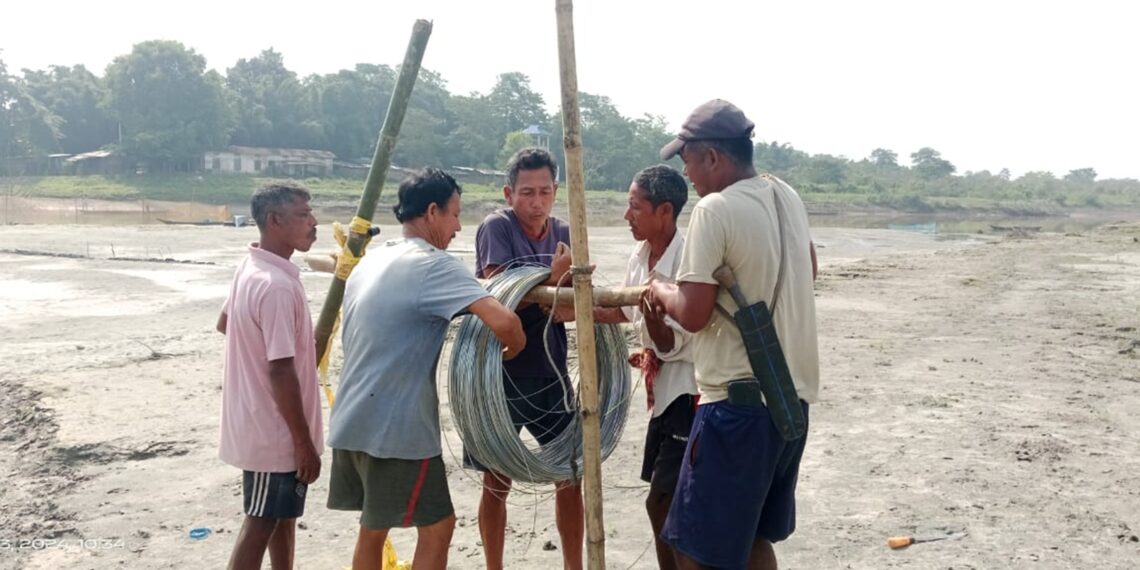Guwahati: In a significant stride towards reducing human-elephant conflict (HEC) in Assam, biodiversity conservation organisation Aaranyak has installed over 30 km of solar-powered fencing across several vulnerable villages in Jorhat district.
The initiative has brought relief to more than 1,000 households long affected by recurring crop raids by wild elephants.
Implemented in partnership with the British Asian Trust and Elephant Family, and supported by the Darwin Initiative, the project spans three core villages—Hatisal Chapori, Sagunpara, and Bejorchiga—and five adjoining ones—Jopong Gaon, Tinighoria, Sumoni Chapori, Maajor Chapori, and Sutal Bagh Gaon.
Altogether, the 30.1 km fence now secures 1,047 households, benefitting over 5,000 villagers dependent on agriculture for their livelihood.
These areas, previously frequented by elephant herds in search of paddy and other crops, have seen a marked decline in raids since the fencing was put in place.
“Earlier, wild elephants would regularly enter our fields, destroying months of effort overnight. Since the fence was installed, we feel much safer,” said a farmer from Hatishal Chapori, one of the worst-affected areas before the intervention.
ALSO READ: Industry meet at CIPET Guwahati connects Barpeta, Bajali entrepreneurs with technical resources
Break-up of the fencing impact shows 290 households in Hatishal Chapori now protected, along with 180 in Tinighoria, 175 in Jopong Gaon, 146 each in Sumoni Chapori and Sutal Bagh, 80 in Bejorchiga, and 30 in Maajor Chapori.
Aaranyak, which has been working across Assam on wildlife conflict mitigation, said the initiative aims to promote coexistence through community involvement and sustainable deterrents.















